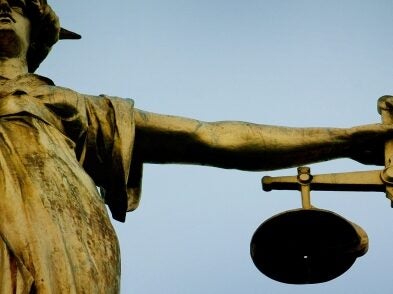
The UK's most senior judge has highlighted the important role the media plays in policing the judiciary and campaigning for open justice.
Lord Neuberger, president of the Supreme Court, said journalists reminded judges of the need for examination.
He made his comments yesterday at a media conference at the Supreme Court in London staged to coincide with the start of the legal year.
"I think one of the important functions of an open society is that the press, the media, remind us sometimes of the need to examine our practices and see whether we do comply as much as we should with the need, for instance, for open justice," he told reporters.
"I think some of the campaigns, while they are not always well-conceived and entirely right in some respects, but the campaigns for improving openness in the courts are to be applauded."
The Times and the Daily Mail have both been particularly active in campaigning for greater openness in the courts.
The Daily Mail reported last year on the secret jailing by the Court of Protection of a woman, 50-year-old Wanda Maddocks, who had tried to take her father out of a care home.
The judge said, in response to a question about the case (the Mail reports): "The short answer is, if you are saying that this case has resulted – which it has done – in increased openness then one welcomes it without reservation."
Lord Neuberger also warned ministers to be cautious before changing the Judicial Review process, which allows people to challenge decisions made by public authorities.
"Great care" was needed before the process was reformed, he said.
Ministers are consulting on possible reform and say they aim to tackle the "burden" that the "growth in unmeritorious judicial reviews" has placed on stretched public services.
Lord Neuberger said: "Any proposals which limit or cut down or risk limiting or cutting down the rights of the citizen to come to court to complain about infringement of his or her rights by the state or any attempts to reduce the ability to curb excesses of the executive through the courts have be to be looked at with great care.
"Having said that of course, there may be abuses which need to be cut down, but I do think that any proposals have to be looked at with very, very great care."
Earlier this year, Lord Neuberger raised concerns about cuts in legal aid budgets – and he reiterated his fears yesterday.
"In general legal aid is what ensures that the most underprivileged people in society, the people who need the protection of the law most in many ways, get a proper hearing because rights, whether human rights or other rights, are valueless if they cannot be enforced in court. Reductions in legal aid therefore inevitably cause one concern," he said.
"If they cannot get legal representation or legal advice even, they are faced with two unpalatable choices.
"One is to put their hands up and not go to court, which is a fundamental denial of a right in any civilised society, and the other is to go to court, often at a disadvantage, because the other side, whether it is the state, whether it is their husband or wife or civil partner or whether it is their neighbour, may have legal representation.
"The problem there is, it is unfair and also the problem is that it is frightening and of concern to the litigant that they do not know what is going on and they feel at a disadvantage.
"They feel angry and bewildered. Court proceedings are often unfriendly to someone who has not been to court.
"The consequence is that it is unfair to them and the consequence for the system is that the hearing will normally take much longer.
"Court staff time will be taken up because they will have to be given advice much more and actually the hearing time will be taken up, which means our court systems become clogged up and other people's cases do not get heard. All this is of concern."
Email pged@pressgazette.co.uk to point out mistakes, provide story tips or send in a letter for publication on our "Letters Page" blog
